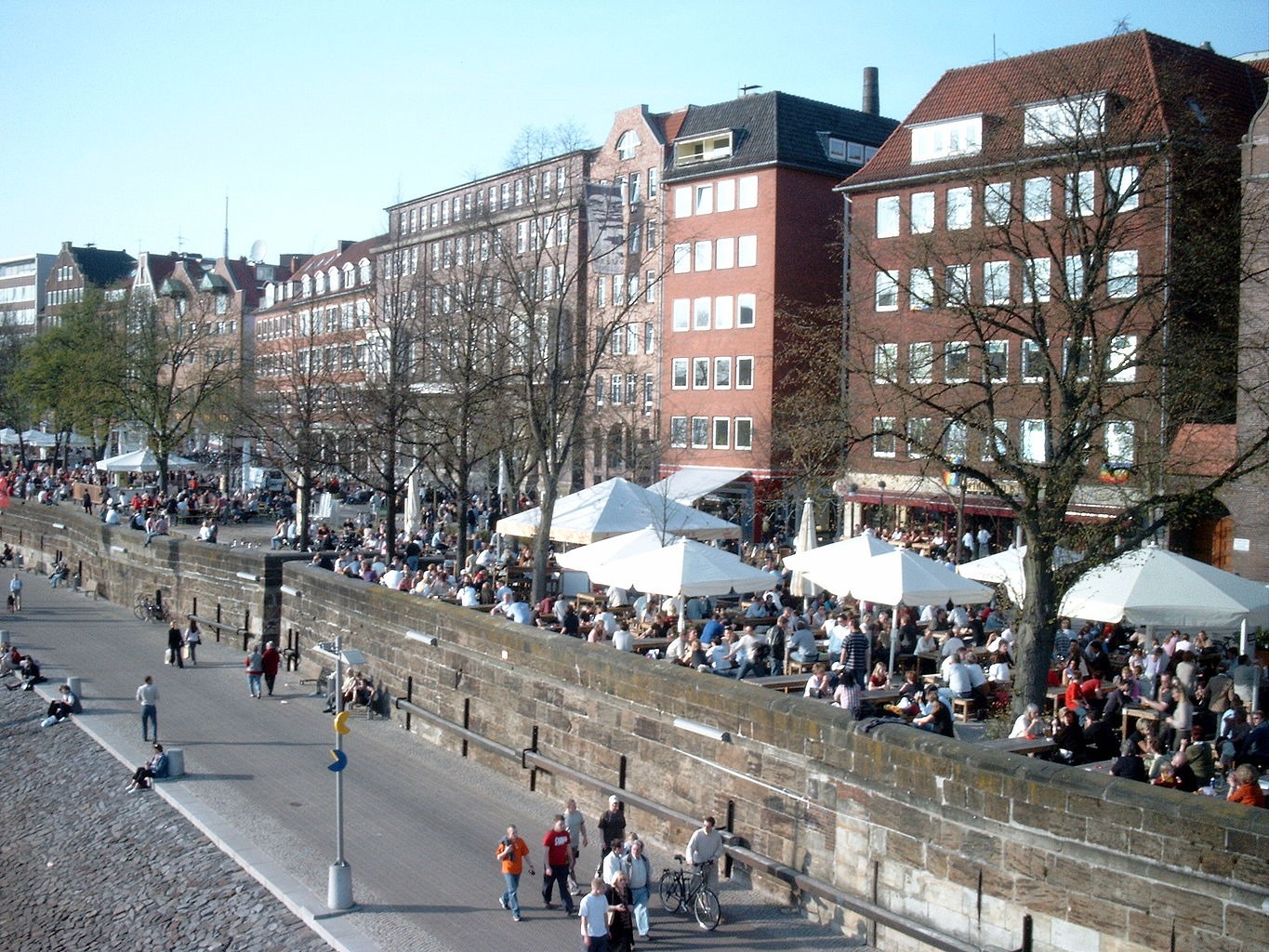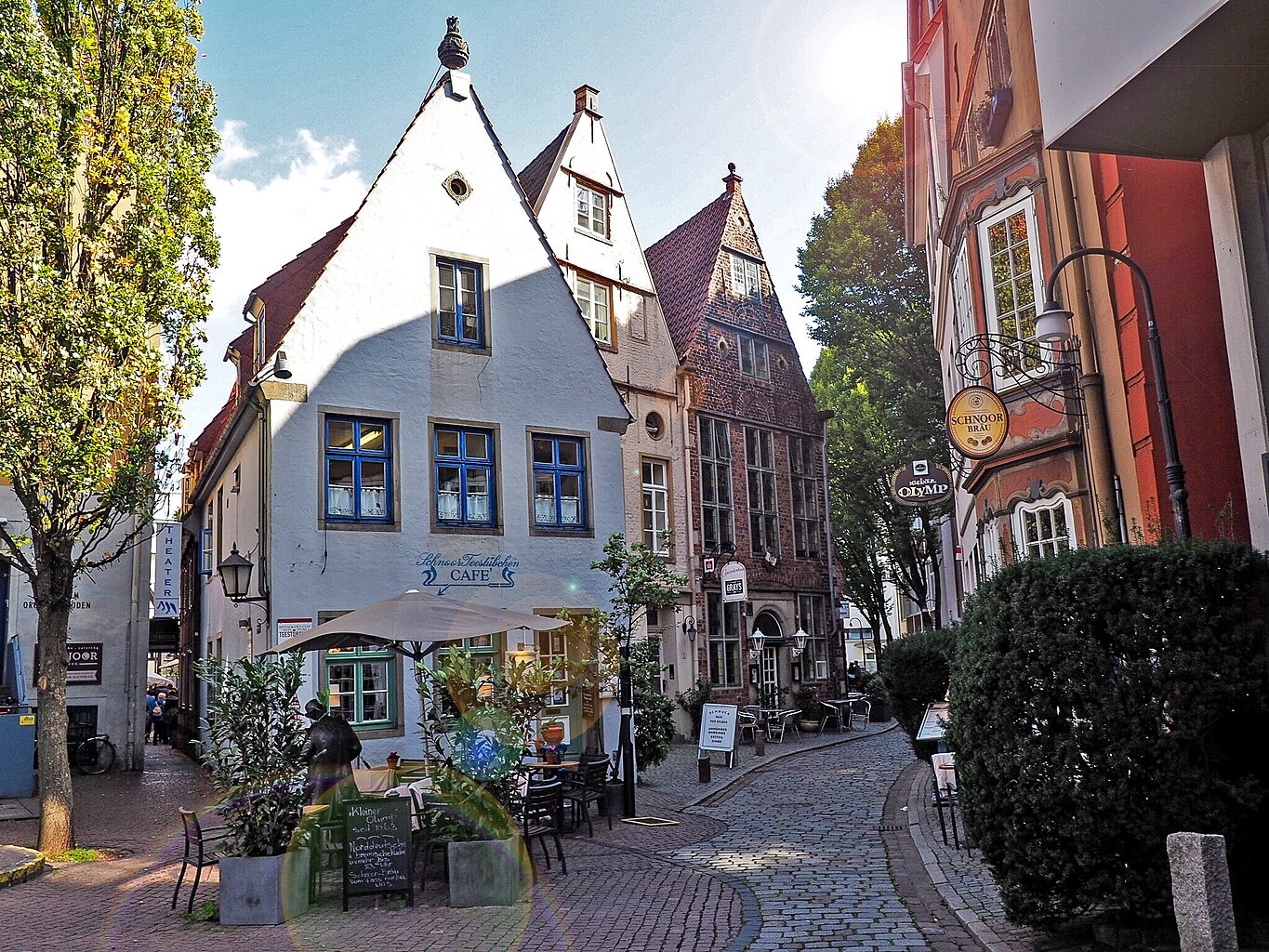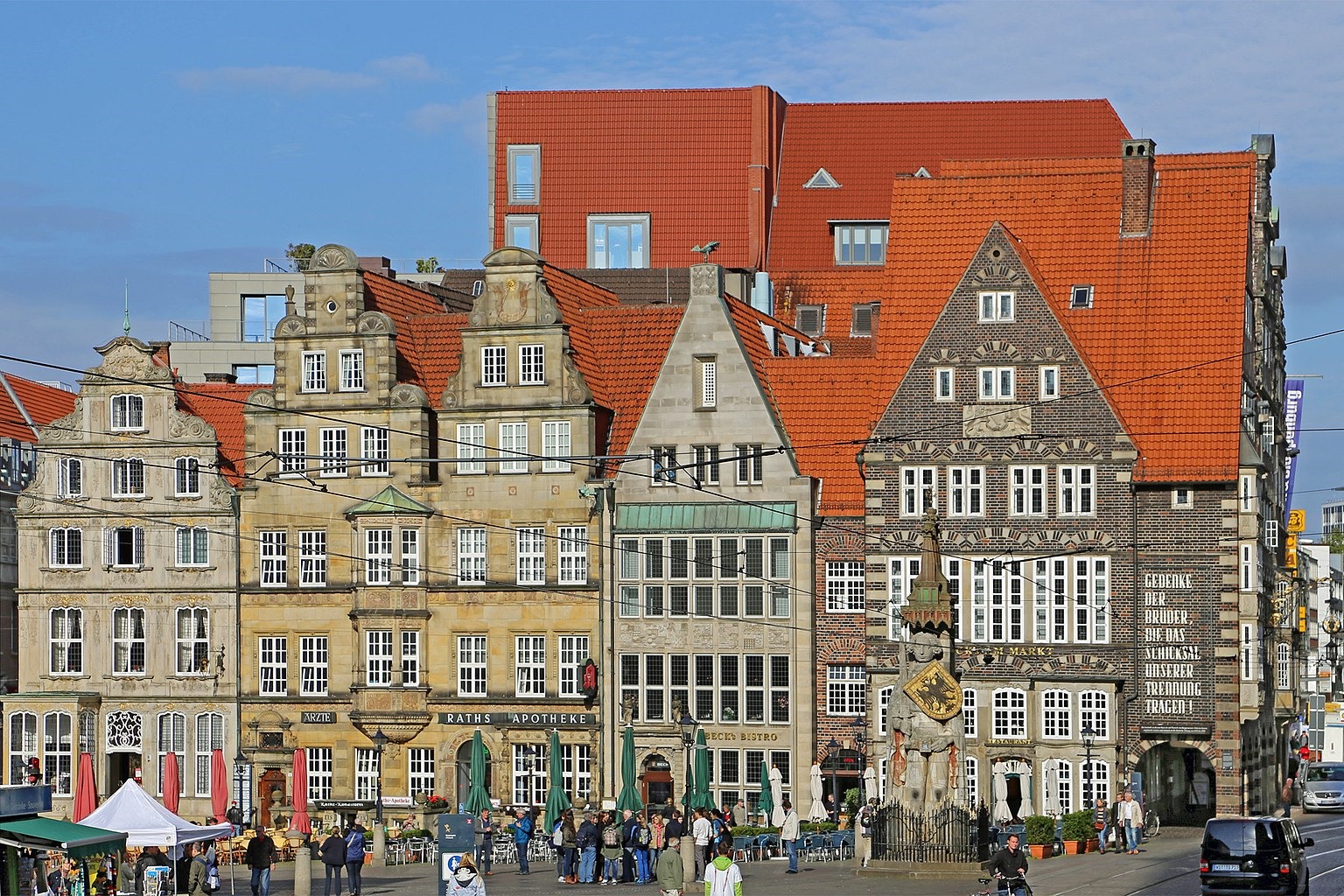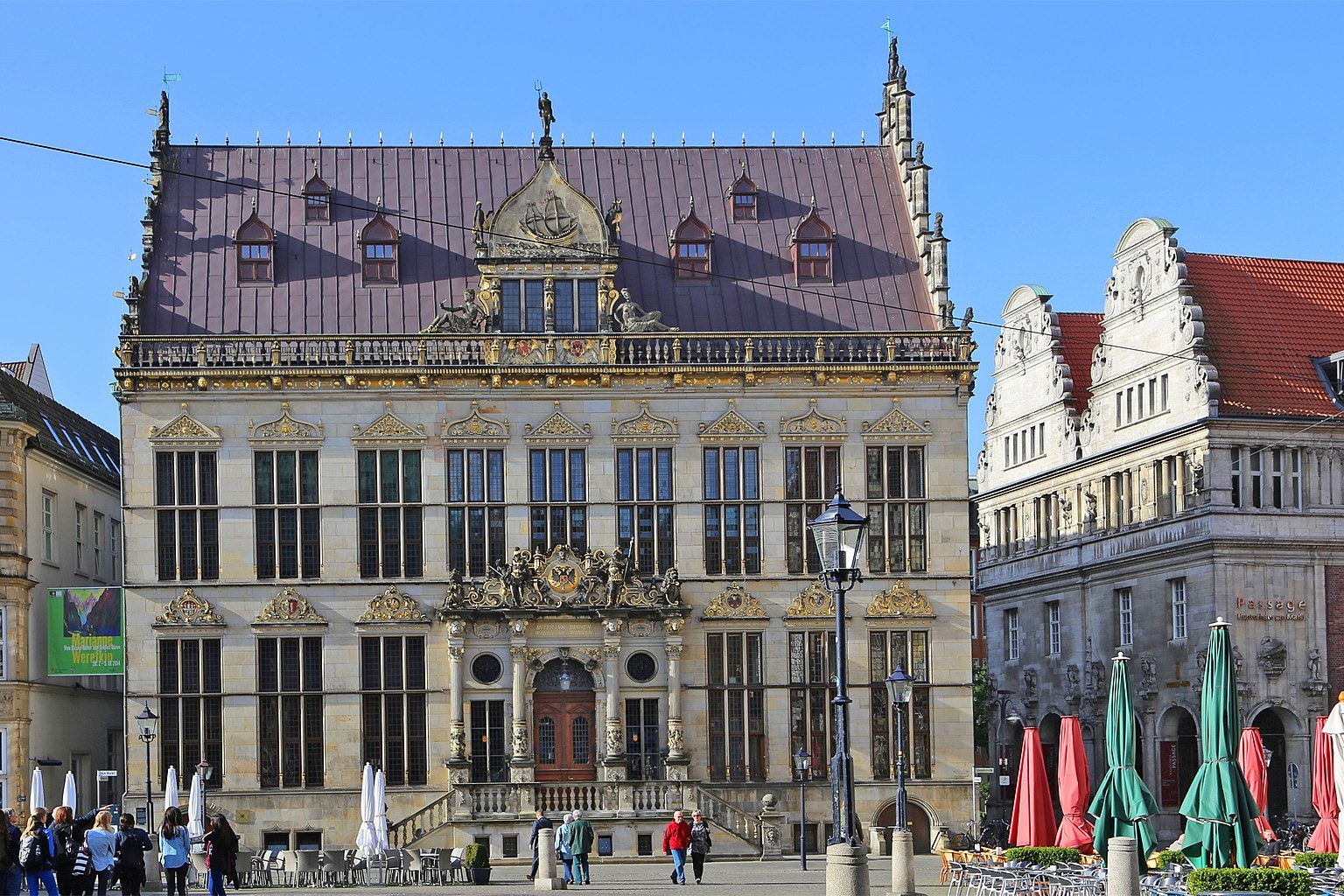About Bremen
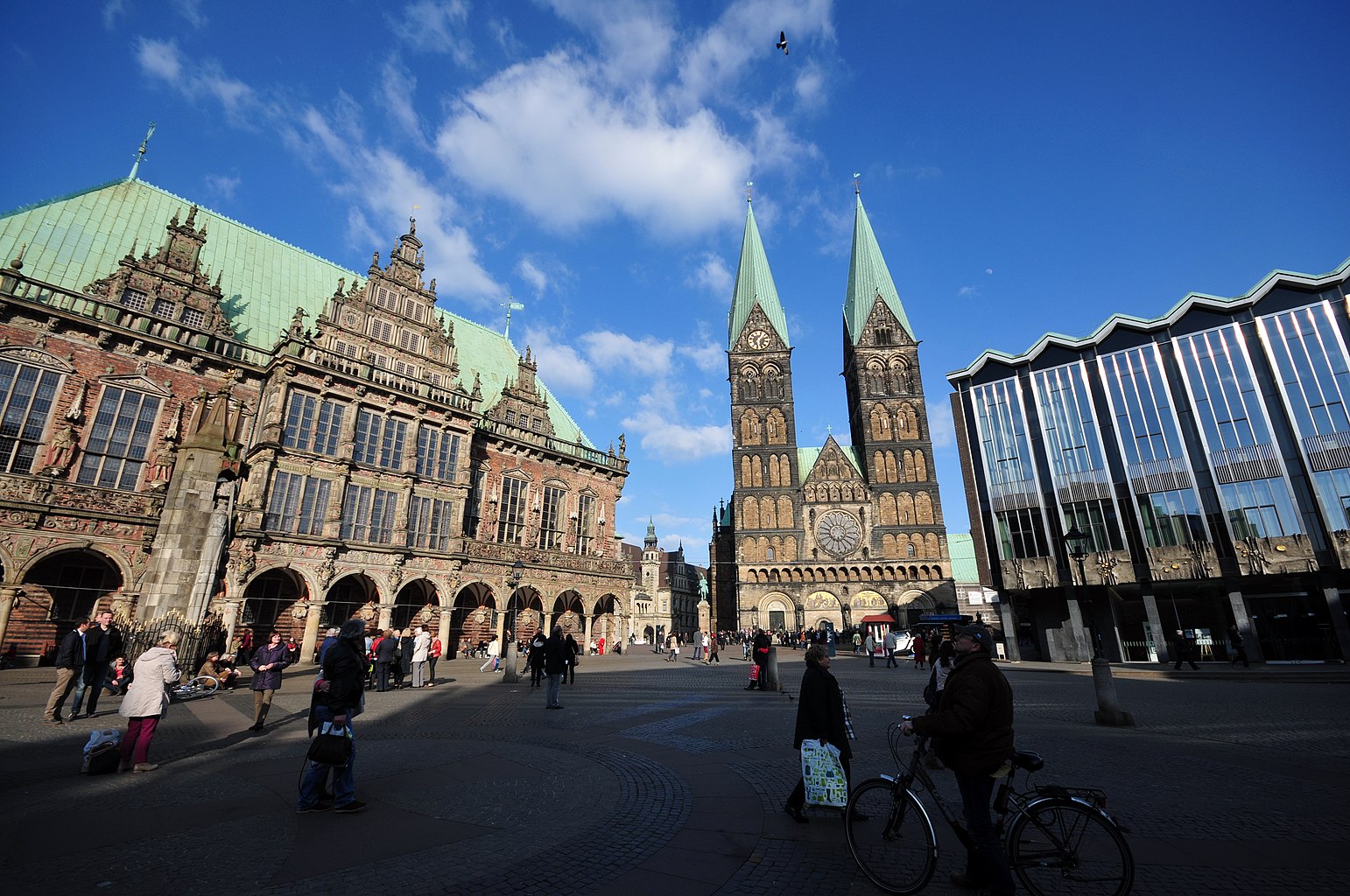
Bremen, officially the City Municipality of Bremen, is the capital of the German state Free Hanseatic City of Bremen (Freie Hansestadt Bremen), a two-city-state consisting of the cities of Bremen and Bremerhaven. With about 570,000 inhabitants, the Hanseatic city is the 11th largest city in Germany and the second largest city in Northern Germany after Hamburg.
Bremen is the largest city on the River Weser, the longest river flowing entirely in Germany, lying some 60 km (37 mi) upstream from its mouth into the North Sea, and is surrounded by the state of Lower Saxony. A commercial and industrial city, Bremen is, together with Oldenburg and Bremerhaven, part of the Bremen/Oldenburg Metropolitan Region, with 2.5 million people.
Bremen is contiguous with the Lower Saxon towns of Delmenhorst, Stuhr, Achim, Weyhe, Schwanewede, and Lilienthal. There is an exclave of Bremen in Bremerhaven, the “Citybremian Overseas Port Area Bremerhaven” (Stadtbremisches Überseehafengebiet Bremerhaven). Bremen is the fourth largest city in the Low German dialect area after Hamburg, Dortmund, and Essen.
Bremen’s port, together with the port of Bremerhaven at the mouth of the Weser, is the second largest port in Germany after the Port of Hamburg. The airport of Bremen (Flughafen Bremen “Hans Koschnick”) lies in the southern borough of Neustadt-Neuenland and is Germany’s 12th busiest airport.
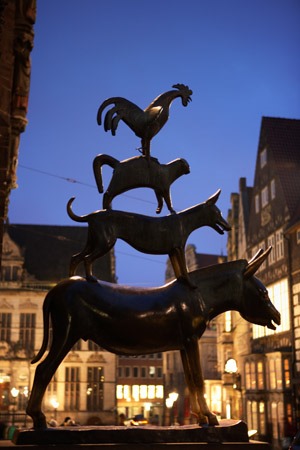
Bremen is a major cultural and economic hub of Northern Germany. The city is home to dozens of historical galleries and museums, ranging from historical sculptures to major art museums, such as the Bremen Overseas Museum (Übersee-Museum Bremen). The Bremen City Hall and the Bremen Roland are UNESCO World Heritage Sites. Bremen is well known through the Brothers Grimm’s fairy tale “Town Musicians of Bremen” (Die Bremer Stadtmusikanten), and there is a statue dedicated to it in front of the city hall.
Bremen has a reputation as a working-class city. The city is home to many multinationals and manufacturing companies headquartered in Bremen including Hachez Chocolate and Vector Foiltec. Bundesliga club SV Werder Bremen play in the Weserstadion on the bank of the Weser.
Bremen has a moderate oceanic climate (Köppen climate classification Cfb) due to its proximity to the North Sea coast and temperate maritime air masses that move in with the predominantly westerly winds from the Atlantic Ocean. However, periods in which continental air masses predominate may occur at any time of the year and can lead to heat waves in the summer and prolonged periods of frost in the winter. In general, though extremes are rare in Bremen and temperatures below −15 °C (5.0 °F) and above 35 °C (95.0 °F) occur only once every couple of years.
